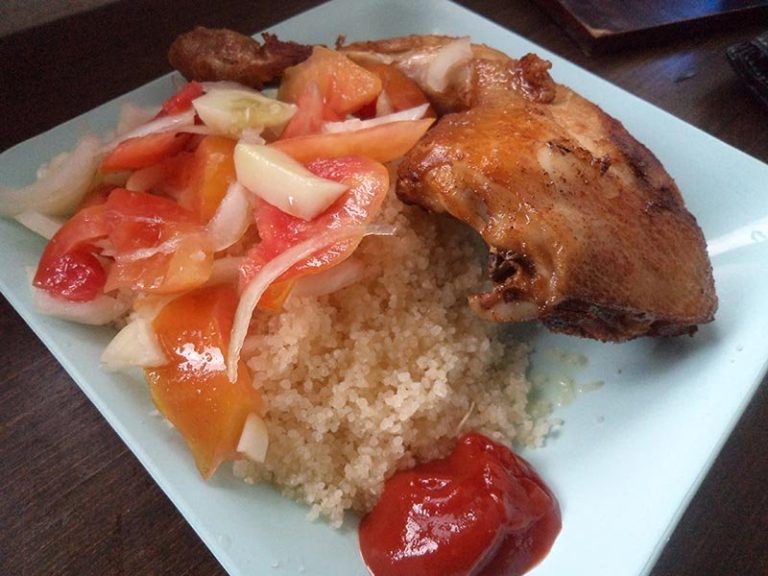Introduction: Côte d’Ivoire cuisine in context
Côte d’Ivoire, also known as Ivory Coast, is a West African country that boasts a rich and diverse culinary heritage. Its cuisine is influenced by the country’s geography, history, and cultural diversity. Côte d’Ivoire is known for its flavorful stews, grilled meats, and seafood dishes. The cuisine is characterized by the use of fresh ingredients and unique spices, which set it apart from other West African cuisines.
Ingredients: The foundation of Ivorian cuisine
The foundation of Ivorian cuisine is its diverse range of ingredients. The cuisine relies heavily on plantains, yams, cassava, and rice, which are staples in the Ivorian diet. Additionally, Ivorian cuisine makes use of a variety of vegetables, fruits, and spices, including tomatoes, onions, garlic, ginger, and hot peppers. Meat, poultry, and seafood are also important components of Ivorian cuisine, with grilled or roasted meats being a popular choice. Peanut butter, palm oil, and coconut milk are commonly used in Ivorian cooking to add flavor and texture to dishes.
Techniques: Unique preparation methods
Ivorian cuisine is known for its unique preparation methods. One technique that sets Ivorian cuisine apart is the use of a pestle and mortar to crush spices and herbs. This traditional method is used to create a smooth and flavorful paste that is added to stews and sauces. Another technique is the use of palm oil, which is a staple in Ivorian cuisine. The oil is used to fry, sauté, and stew meats and vegetables, giving dishes a distinct flavor and color. Grilling is also a popular cooking method in Ivorian cuisine, with grilled fish and meat being a staple in many Ivorian diets.
Flavors: Distinctive taste combinations
Ivorian cuisine is renowned for its distinctive taste combinations. The cuisine is known for its bold and spicy flavors, which are achieved through the use of herbs, spices, and hot peppers. One popular flavor combination is peanut butter and tomato sauce, which is used to create a rich and creamy sauce for stews and soups. Another popular combination is sweet and savory, with dishes often featuring ingredients like plantains and coconut milk or yams and honey.
Influences: Historical and cultural factors
Ivorian cuisine is influenced by a variety of historical and cultural factors. The country’s location on the coast has led to the incorporation of seafood into many dishes. Additionally, the country’s history of trade and migration has resulted in the blending of different culinary traditions. French colonialism, in particular, has had a significant impact on Ivorian cuisine, with French culinary techniques and ingredients being incorporated into traditional Ivorian dishes.
Regional variations: Differences within Côte d’Ivoire
There are regional variations in Ivorian cuisine, with different parts of the country having their own distinctive culinary traditions. In the north, for example, millet and sorghum are commonly used in dishes, while the south is known for its seafood and coconut-based dishes. Additionally, the cuisine of the Baoulé people is known for its use of eggplant and okra, while the cuisine of the Senufo people features a variety of bush meats.
Comparison with neighboring West African cuisines
While Ivorian cuisine shares similarities with other West African cuisines, there are also distinct differences. Ivorian cuisine is known for its use of palm oil and peanut butter, which are not as commonly used in other West African cuisines. Additionally, Ivorian cuisine tends to be spicier than other West African cuisines, with hot peppers being a staple ingredient.
Conclusion: The diversity of West African cuisine
Côte d’Ivoire cuisine is a rich and diverse culinary tradition that is shaped by a variety of factors, including geography, history, and cultural diversity. Its unique ingredients, preparation methods, and flavors set it apart from other West African cuisines. Despite differences between Ivorian cuisine and its neighbors, it is clear that West African cuisine as a whole is marked by a diversity of culinary traditions that reflect the region’s complex history and cultural heritage.

